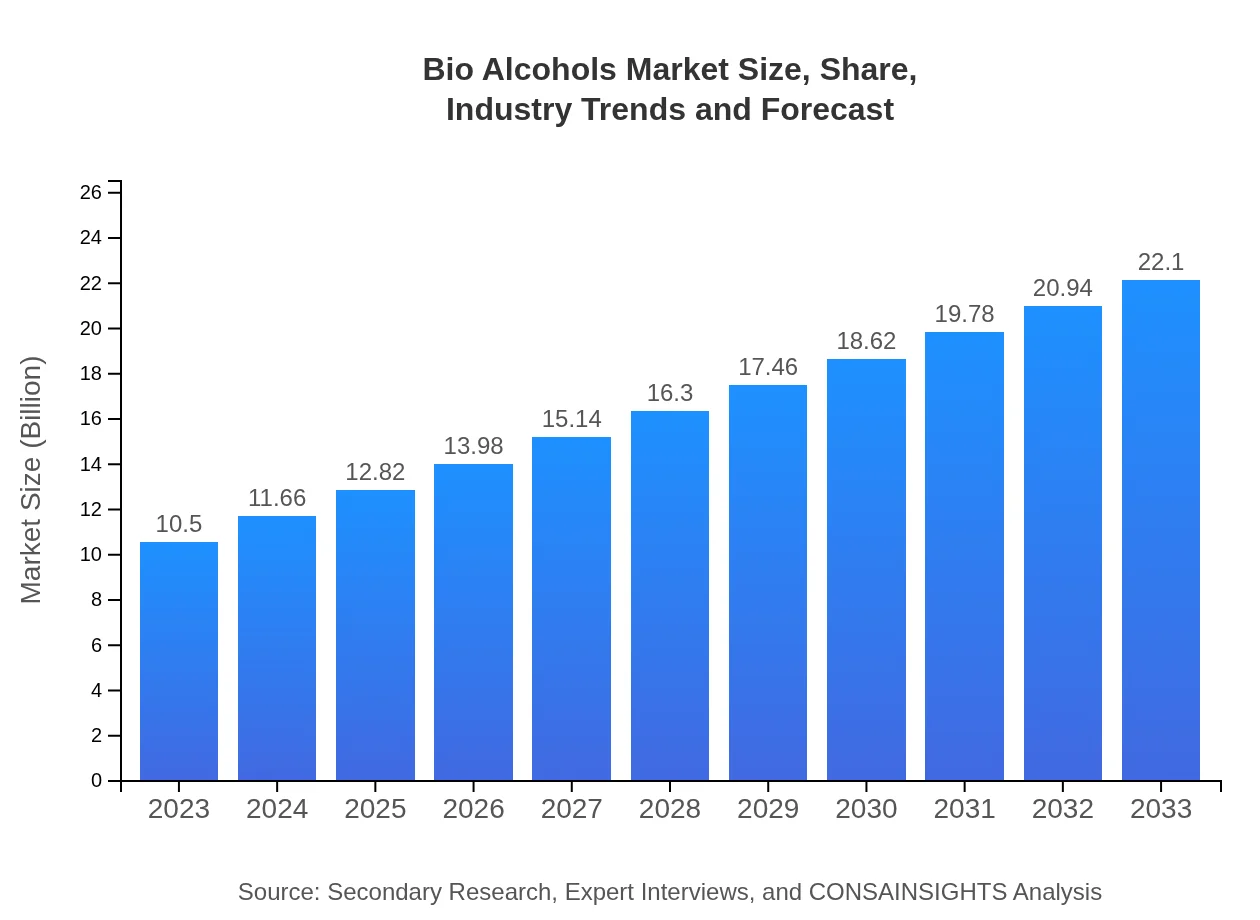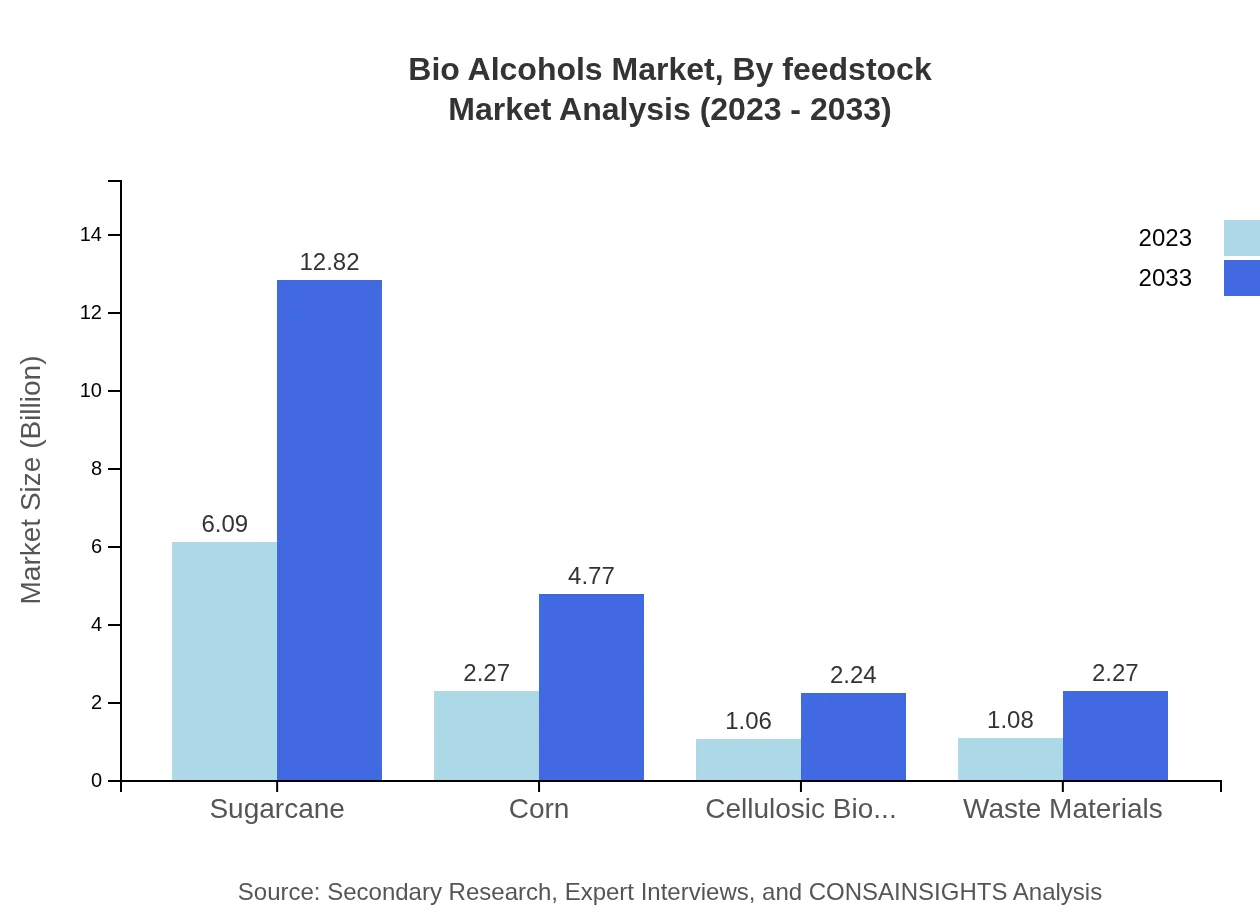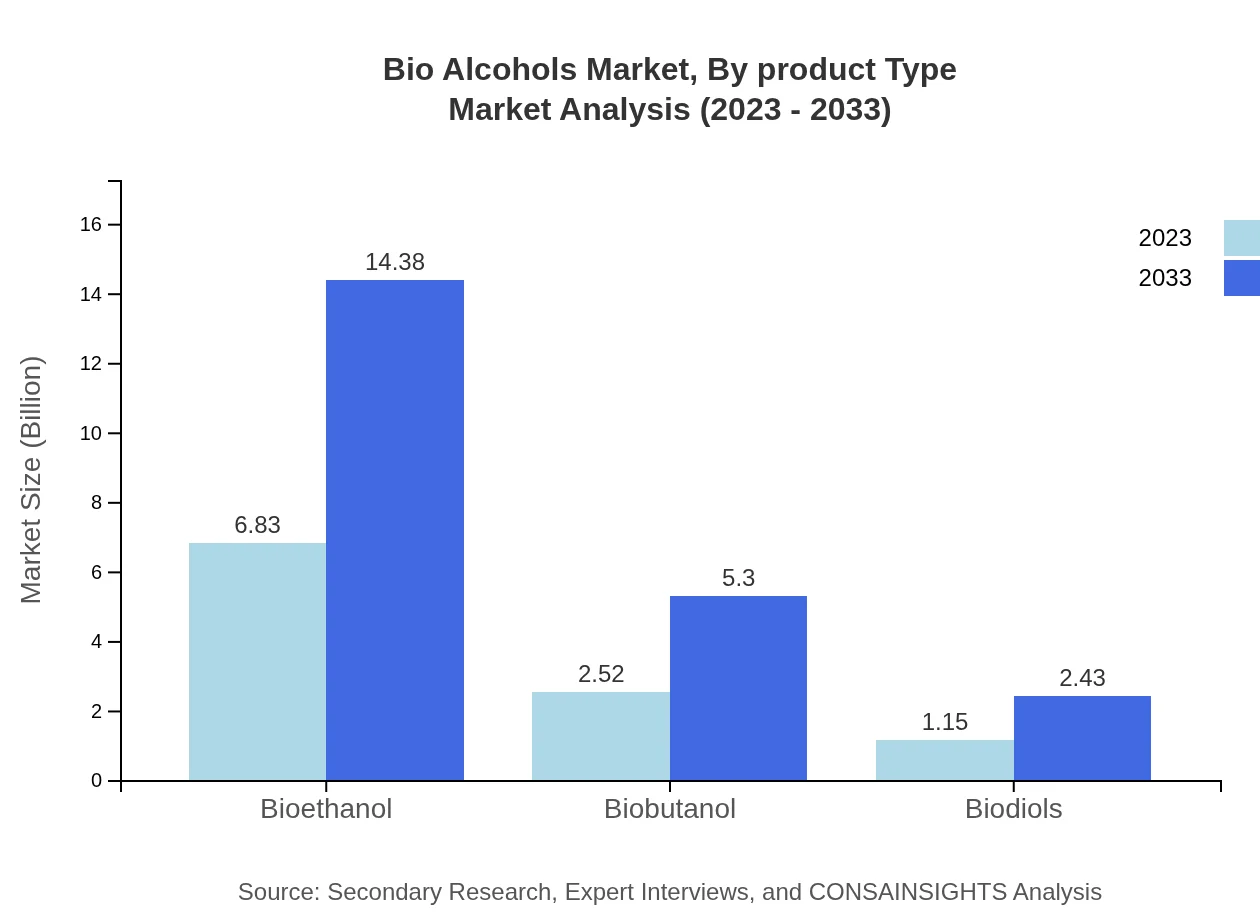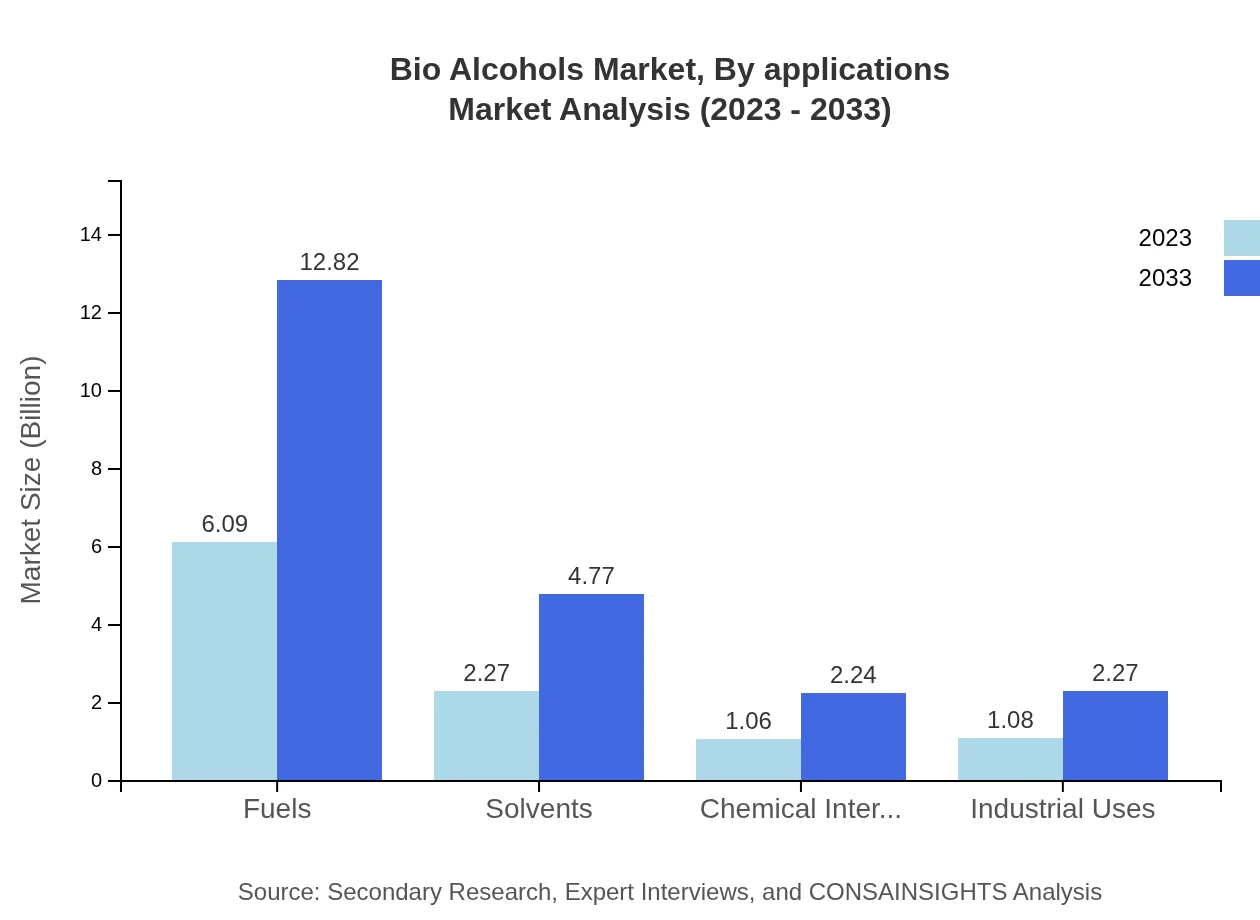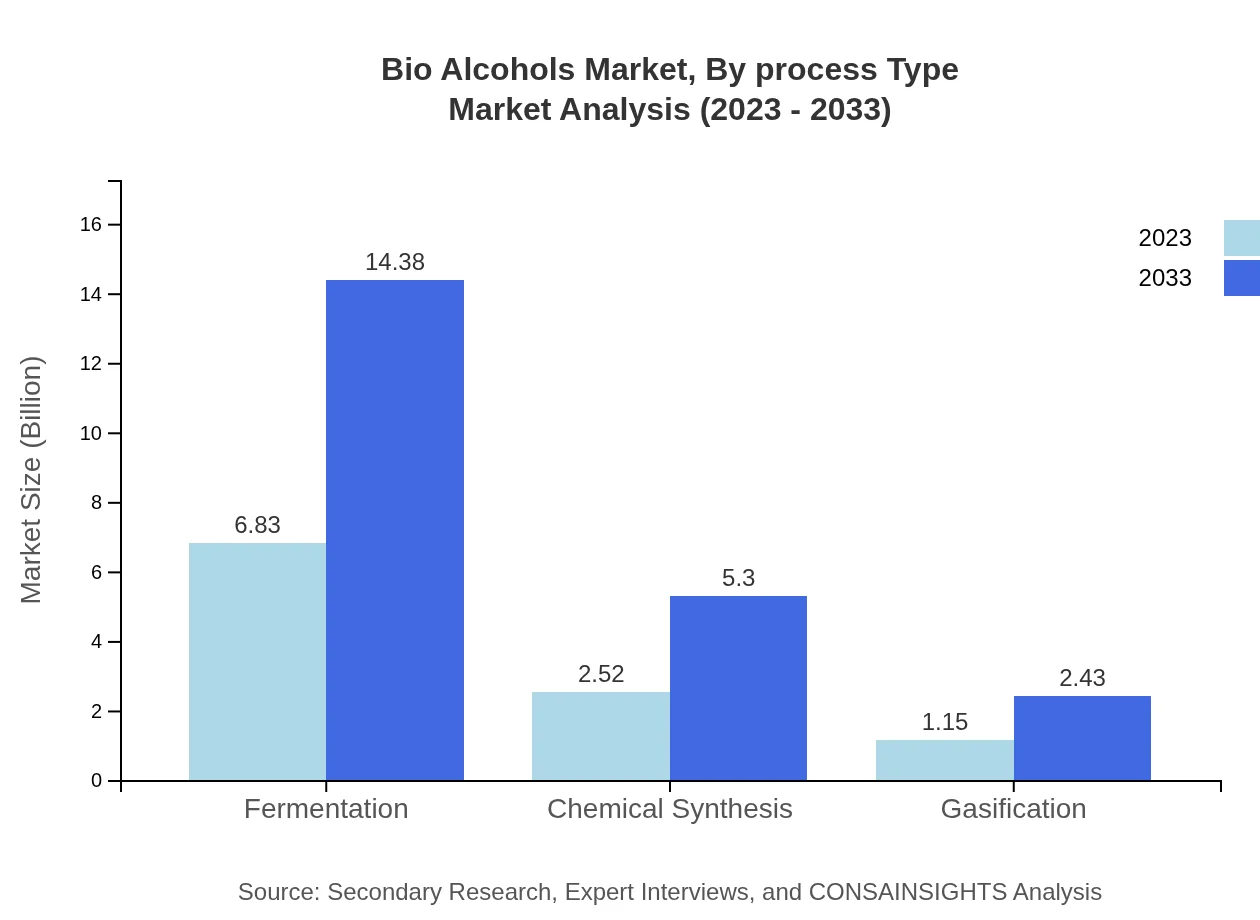Bio Alcohols Market Report
Published Date: 02 February 2026 | Report Code: bio-alcohols
Bio Alcohols Market Size, Share, Industry Trends and Forecast to 2033
This report provides an in-depth analysis of the Bio Alcohols market from 2023 to 2033. It includes market trends, size, segment analysis, regional insights, industry dynamics, and forecasts, offering valuable insights for stakeholders.
| Metric | Value |
|---|---|
| Study Period | 2023 - 2033 |
| 2023 Market Size | $10.50 Billion |
| CAGR (2023-2033) | 7.5% |
| 2033 Market Size | $22.10 Billion |
| Top Companies | POET, LLC, Abengoa Bioenergy, Green Plains Inc., DuPont |
| Last Modified Date | 02 February 2026 |
Bio Alcohols Market Overview
Customize Bio Alcohols Market Report market research report
- ✔ Get in-depth analysis of Bio Alcohols market size, growth, and forecasts.
- ✔ Understand Bio Alcohols's regional dynamics and industry-specific trends.
- ✔ Identify potential applications, end-user demand, and growth segments in Bio Alcohols
What is the Market Size & CAGR of Bio Alcohols market in 2023?
Bio Alcohols Industry Analysis
Bio Alcohols Market Segmentation and Scope
Tell us your focus area and get a customized research report.
Bio Alcohols Market Analysis Report by Region
Europe Bio Alcohols Market Report:
Europe's market is anticipated to increase from $3.38 billion in 2023 to $7.11 billion by 2033, propelled by stringent environmental regulations and a strong focus on reducing greenhouse gas emissions.Asia Pacific Bio Alcohols Market Report:
The Asia Pacific region shows promising growth, with the market projected to rise from $2.00 billion in 2023 to $4.21 billion by 2033. This growth is driven by increasing fuel demands and government initiatives promoting renewable energy sources.North America Bio Alcohols Market Report:
The North American market will expand from $3.42 billion in 2023 to $7.19 billion by 2033, reflecting the vast agricultural landscape and innovation in biofuel technologies, particularly in the United States.South America Bio Alcohols Market Report:
In South America, particularly Brazil, the market is expected to grow from $0.63 billion in 2023 to $1.33 billion by 2033, thanks to the established sugarcane industry and supportive biofuels legislation.Middle East & Africa Bio Alcohols Market Report:
The Middle East and African market is set to grow from $1.08 billion in 2023 to $2.27 billion by 2033, with emerging interest in biofuels to diversify energy sources and combat climate change.Tell us your focus area and get a customized research report.
Bio Alcohols Market Analysis By Feedstock
The feedstock segment includes sugarcane, corn, cellulosic biomass, and waste materials. Sugarcane holds the largest share, growing from $6.09 billion in 2023 to $12.82 billion in 2033, due to high yields and established production methods. Corn is also significant, with a market size projected to increase from $2.27 billion to $4.77 billion during the same period. Cellulosic biomass and waste materials are gaining traction, indicating a shift towards utilizing agricultural residues and waste in bio-alcohol production.
Bio Alcohols Market Analysis By Product Type
Product types include bioethanol, biobutanol, and biodiols. Bioethanol dominates with a market size expansion from $6.83 billion to $14.38 billion, maintaining a 65% market share. Biobutanol follows, expected to reach $5.30 billion by 2033, holding a 24% share. Biodiols are a smaller segment, growing to $2.43 billion. The performance of these product types is influenced by their applications in fuels and chemicals.
Bio Alcohols Market Analysis By Applications
Applications of bio alcohols include fuels, solvents, chemical intermediates, and industrial uses. The fuel segment is a critical growth area, with sizes increasing from $6.09 billion to $12.82 billion, representing 58% of the market. Solvents and chemical intermediates also show steady growth, emphasizing the diverse applications of bio alcohols in various industries.
Bio Alcohols Market Analysis By Process Type
Process types encompass fermentation, chemical synthesis, and gasification. Fermentation remains the preferred method, growing from $6.83 billion to $14.38 billion with a 65% market share. The evolution of these processes reflects advancements in technology that enhance yields and reduce costs, driving market expansion.
Bio Alcohols Market Trends and Future Forecast
Tell us your focus area and get a customized research report.
Global Market Leaders and Top Companies in Bio Alcohols Industry
POET, LLC:
A leading biofuel producer, POET focuses on producing bioethanol from corn and invests significantly in R&D for sustainable practices.Abengoa Bioenergy:
Operating globally, Abengoa specializes in bioethanol production and integrates agricultural practices with renewable energy solutions.Green Plains Inc.:
Green Plains is one of the largest producers of bioethanol in the U.S., emphasizing environmental sustainability and growth in production capabilities.DuPont:
DuPont is innovating in bio-based products and has a strong focus on biobutanol development as a sustainable chemical intermediate.We're grateful to work with incredible clients.









FAQs
What is the market size of bio Alcohols?
The global bio-alcohols market is projected to reach a size of approximately $10.5 billion by 2033, growing at a CAGR of 7.5% from 2023 to 2033.
What are the key market players or companies in the bio Alcohols industry?
Key players in the bio-alcohols market include Archer Daniels Midland Company, BASF SE, Green Plains Inc., and Dupont, among others, which are actively innovating and expanding their bio-alcohol product offerings.
What are the primary factors driving the growth in the bio Alcohols industry?
Growth drivers include increasing demand for renewable energy sources, government mandates for biofuel blending, rising environmental concerns, and advancements in fermentation technologies that enhance bio-alcohol production efficiency.
Which region is the fastest Growing in the bio Alcohols market?
The Asia Pacific region is the fastest-growing market for bio-alcohols, expanding from $2.00 billion in 2023 to $4.21 billion by 2033, driven by rapid industrialization and supportive government policies.
Does ConsaInsights provide customized market report data for the bio Alcohols industry?
Yes, ConsaInsights offers customized market report data tailored to specific needs and requirements of businesses in the bio-alcohols sector, allowing for targeted insights.
What deliverables can I expect from this bio Alcohols market research project?
Deliverables include comprehensive market analysis reports, competitive landscape assessments, segment breakdowns, regional insights, forecasts, and actionable recommendations based on current market trends.
What are the market trends of bio Alcohols?
Current trends in the bio-alcohols market include the rising adoption of bioethanol as a transport fuel, increasing use of cellulosic feedstocks, and a focus on sustainability in production practices.

